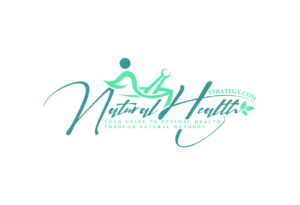Music therapy is a unique approach that harnesses the power of music to support mental, emotional, and physical health. Used by many cultures for centuries, music has long been valued for its ability to heal and connect people. Today, music therapy is a recognized practice in health care.
Whether helping to ease anxiety or improve mood, music therapy offers benefits across a range of conditions. This article will explore its origins, how it works, its applications, and the latest research on its effectiveness.
The Origins of Music Therapy
Music therapy has deep roots in ancient civilizations. Cultures like the Egyptians, Greeks, and Chinese believed that music could heal both the body and soul. In ancient Greece, philosophers such as Pythagoras and Plato viewed music as a therapeutic tool to restore balance in the body.
Modern practice began in the early 20th century. After World War I and II, musicians played for veterans suffering from physical and emotional trauma. The positive effects led to the formal development of the profession, with training programs and certification emerging by the 1950s.
How Music Therapy Works
Music therapy isn’t just about listening to music—it’s an active, dynamic process that taps into the emotional and physical power of sound. During a session, certified therapists guide patients through various activities, such as:
- Listening to specific music, which evokes emotions or triggers memories.
- Singing or chanting, enhancing mood and boosting confidence.
- Playing instruments, helping to improve motor skills and coordination.
- Songwriting or improvisation, encouraging creativity and emotional expression.
Each session targets the patient’s unique needs. For instance, therapists use rhythmic music to energize those recovering from a stroke. Similarly, calming melodies can reduce anxiety in patients managing chronic stress. By actively engaging multiple brain areas, music therapy promotes emotional release, relaxation, and cognitive improvement.
Music Therapy in Practice: Applications Across Health Conditions

Music therapy is highly versatile and supports various health conditions. Some of its most impactful uses include:
- Mental Health: Music can reduce symptoms of anxiety, depression, and PTSD. Patients find comfort, express their emotions, and manage stress through musical activities.
- Chronic Pain: By shifting focus and triggering the release of endorphins, music helps patients manage pain more effectively, often reducing their reliance on medication.
- Neurological Rehabilitation: Those recovering from strokes, brain injuries, or conditions like Parkinson’s disease benefit from improved motor skills and cognitive functions. Rhythmic patterns assist in speech recovery and relearning movement.
- Developmental Disorders: For children with autism or developmental delays, music can enhance social skills, communication, and sensory processing through structured interventions.
By applying music in these areas, therapists help patients experience improved emotional balance and physical healing. This makes it a valuable tool in various healthcare settings.
What the Research Says: Evidence and Findings
Research on music therapy consistently highlights its positive effects on both mental and physical health. Numerous studies have shown how music can impact the brain, mood, and behavior. Here are a few key findings:
- Emotional Well-being: Studies show that music therapy reduces anxiety, stress, and depression. Listening to music stimulates the brain’s reward centers, releasing dopamine and improving mood.
- Neurological Benefits: Research involving stroke survivors and patients with Parkinson’s disease found that rhythmic music can significantly enhance motor skills and speech recovery. This effect is due to music activating multiple brain regions simultaneously, helping to restore lost functions.
- Pain Reduction: Clinical trials suggest that music therapy reduces pain perception in patients with chronic conditions. Music helps distract patients from pain while also promoting relaxation, which leads to lower levels of perceived discomfort.
- Improved Quality of Life: In settings like hospice care, studies demonstrate that music can improve patients’ overall quality of life by easing symptoms and providing emotional comfort during difficult times.
These findings continue to build a strong case for incorporating music into healthcare plans, offering hope for those seeking complementary or alternative therapies.
Integrating Music Therapy into Health Care
Integrating music therapy into health care settings offers numerous benefits for patients and practitioners alike. Hospitals, rehabilitation centers, and mental health clinics are increasingly recognizing the value of this approach. Here’s how it’s being incorporated:
- In Hospitals: Many hospitals now offer music therapy as part of pain management, particularly for patients undergoing surgery or battling chronic illnesses. Music sessions help reduce anxiety before procedures and aid in post-operative recovery.
- In Mental Health Clinics: For patients dealing with conditions like depression or PTSD, music therapy serves as a powerful tool for emotional expression and stress reduction. It is often used alongside traditional treatments like psychotherapy or medication.
- In Rehabilitation Centers: Individuals recovering from strokes or brain injuries benefit from rhythm-based exercises that improve motor function, balance, and coordination. Music interventions also support cognitive rehabilitation by stimulating memory and attention.
- In Hospice Care: Music therapy provides comfort and emotional support for terminally ill patients, helping them manage pain and find peace in their final days. It also assists families in coping with grief.
By integrating music into health care, practitioners can offer more holistic treatments, addressing both emotional and physical needs. This approach not only enhances patient outcomes but also makes the treatment process more engaging and personalized.
Challenges and Opportunities in Music Therapy
While music therapy has proven benefits, it also faces certain challenges. These hurdles need to be addressed for the practice to grow and become more widely accepted. However, alongside the challenges, exciting opportunities continue to emerge.
Challenges:
- Limited Awareness: Many people, including healthcare providers, are still unaware of the full scope of music therapy’s benefits. This lack of understanding can lead to underutilization in treatment plans.
- Funding and Accessibility: It is not always covered by insurance, making it less accessible to some patients. As a result, individuals who could benefit may miss out due to financial barriers.
- Standardization: While music therapy is evidence-based, there is still a need for standardized guidelines to ensure consistency across various clinical settings. Certification processes exist, but practices may vary widely between institutions.
Opportunities:
- Growing Research: As more studies highlight the effectiveness of music therapy, the potential for its integration into mainstream medicine continues to rise. More hospitals and clinics are incorporating it into their programs, recognizing its value in both mental and physical health.
- Technological Advances: Advances in technology, such as music apps or virtual reality experiences, are creating new possibilities for remote or personalized sessions. These innovations offer more flexibility in treatment delivery.
- Wider Acceptance in Diverse Settings: Music therapy is now being integrated into schools, prisons, and community programs, making it accessible to broader populations. These applications show great potential for helping underserved or at-risk groups.
Despite the challenges, the opportunities in this field are expanding rapidly. With ongoing research and a greater focus on holistic care, music therapy is poised for significant growth in the future.
Looking Ahead: The Future of Music Therapy

The future of music therapy is promising, as new research and technologies continue to emerge. As the understanding of how music impacts the brain deepens, this field is likely to expand its reach and effectiveness in health care. Some exciting trends shaping the future include:
Neuroscience Breakthroughs
As scientists learn more about the brain’s response to music, tailored music therapy programs could become even more precise. Personalized music treatments based on individual neurological profiles may lead to more effective outcomes.
Technological Integration
Digital tools, such as AI-powered music generators and virtual reality experiences, are set to revolutionize music therapy. These technologies could offer personalized therapy sessions that adapt to the patient’s emotional state in real-time, providing a more immersive and responsive experience.
Telehealth and Remote Sessions
The rise of telehealth is opening up new opportunities for music therapy to be delivered remotely. Patients in rural or underserved areas will have greater access to therapy, as online platforms make it easier for therapists to reach a wider audience.
Cross-disciplinary Collaboration
The collaboration between music therapists, neuroscientists, and healthcare providers will continue to strengthen the field. As music therapy becomes more integrated into mainstream healthcare, it could become a standard part of treatment plans for various conditions, from mental health issues to chronic pain and neurological rehabilitation.
Looking ahead, music therapy is set to become an even more vital part of holistic health care. Its unique ability to connect with patients on emotional, physical, and cognitive levels will ensure its relevance in modern medicine for years to come.
Conclusion
Music therapy is a powerful and versatile tool that enhances mental, emotional, and physical well-being. From its ancient roots to its modern applications, it continues to offer therapeutic benefits across a wide range of health conditions. Whether it’s easing anxiety, improving motor skills, or providing comfort in hospice care, it has proven its value in health care.
As research and technology advance, the future of music therapy looks even brighter. With growing acceptance, wider accessibility, and new innovations on the horizon, it is set to play an increasingly important role in holistic treatment plans. By integrating it into health care, we can continue to unlock its potential to heal and transform lives.





